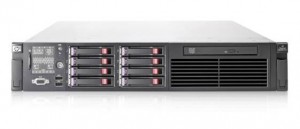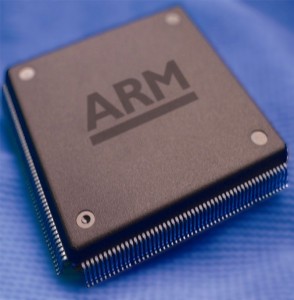
You may not think that ARM processors stand a chance in bodHOST Dedicated Server Hosting environment, but there are stringent benefits with ARM processors in the web hosting industry, and for a start because they’re power-efficient compared to Intel and AMD processors. This means ARM-based devices have the following benefits:
Higher Battery Life and Reduced Cooling Requirements :
Devices with ARM processors have greater battery life and reduced cooling requirements because of the way ARM processors work. Which also means it doesn’t require the level of cooling an Intel or AMD processor would require. So for many devices with ARM processors, like smartphones and most of the popular tablet computers out there, such as the iPad and Android tablets, do not require cooling unlike an equivalent tablet with an Intel or AMD processor. In fact, the new Microsoft Surface tablet that also has a Pro model that comes with an Intel processor will have cooling and essentially air vents with it – but Microsoft has been able to do this in a way in which is unobtrusive to the end user.
Having said that, the stringent benefits of ARM processors are primarily higher battery life (for devices that have a battery) and reduced cooling requirements. In a server environment, this can equate to reduced power consumption and not requiring the level of cooling and ventilation as would be necessary for servers that are also low power, but instead have Intel or AMD processors inside.
ARM Processors can result in thinner, slimmer and more portable servers
 In a usage environment where an ARM-based servers are perfect, the benefits also come along when it concerns the size of servers, considering data centres only have infinite space and room – and for powerful servers, they can only be so compact before it becomes impossible because of the amount of heat the components will generate, especially the processor.
In a usage environment where an ARM-based servers are perfect, the benefits also come along when it concerns the size of servers, considering data centres only have infinite space and room – and for powerful servers, they can only be so compact before it becomes impossible because of the amount of heat the components will generate, especially the processor.
Coupled in a system-on-a-chip package, servers can be thinner, lighter and use less power
A system-on-a-chip refers to all the electronic components being in one chip – including for digital, audio, external I/O (USB, Ethernet, etc.), RAM and so forth.
Where can ARM processors by useful in ?
Well, as reported by TechWorld, a company called Calxeda that makes chips using the ARM processor design, believes that ARM processors will, in the future, coincide with Intel or AMD processors, to make a server that has a similar concept to hybrid graphics – where intensive processing will be executed and handled by the x86 processors, whereas tasks that can make use of more power-efficient processors and that doesn’t require a lot of processing power could be handled by the power-efficient ARM processors.
If you consider for a moment, Hybrid Graphics
Many computer systems today have hybrid graphics systems – in fact, even Apple notebooks have hybrid graphics. To save battery life and for general non-gaming use, Apple’s operating system will make use of the more power-efficient Intel HD graphics processor, but if you’re running more graphically-intensive applications (a prime example being games, obviously) – the operating system will automatically switch to the more performance-efficient graphics processor – in the case of Apple laptops, currently an NVIDIA GeForce graphics processor.
As a dedicated server hosting provider ourselves, we do believe ARM processors have a future in the server environment
The bottom line is it’s safe to say that at some point in the future, it sounds absolutely plausible for ARM processors to be useful in the server market – especially as a hybrid solution.
As a provider of managed dedicated servers at bodHOST, there are inherent benefits of a hybrid server, such as:
Lower Electricity Costs and Other Positive Factors :
By the concept of having the ARM chips do the less-intensive work for power-efficiency, it inevitably results in a ratio where electricity costs are reduced for the same period of time than simply having a server as most are today, with an x86 processor doing both processor-intensive tasks and tasks that do not require a lot of processing power.
For the data centre to have smaller electricity bills as a result, these savings can likely be handed down to web hosting providers which means web hosting providers can pass their own savings down to their customers. So the core benefits are essentially power efficiency, which equates to:
- Lower electricity bills;
- Environmentally-friendly (ARM processors being incredibly power-efficient);
- Savings will eventually be passed down consumers.
And from a corporate social responsibility perspective, companies that want to go further with their concerns over their carbon footprint and the environmental aspects of their corporate responsibility policies, having power-efficient server hardware is a critical component of being an environmentally-responsible business, especially as a dedicated web hosting provider, because it is safe to suffice that as a web hosting provider, their dedicated servers are the most taxing to the environment.